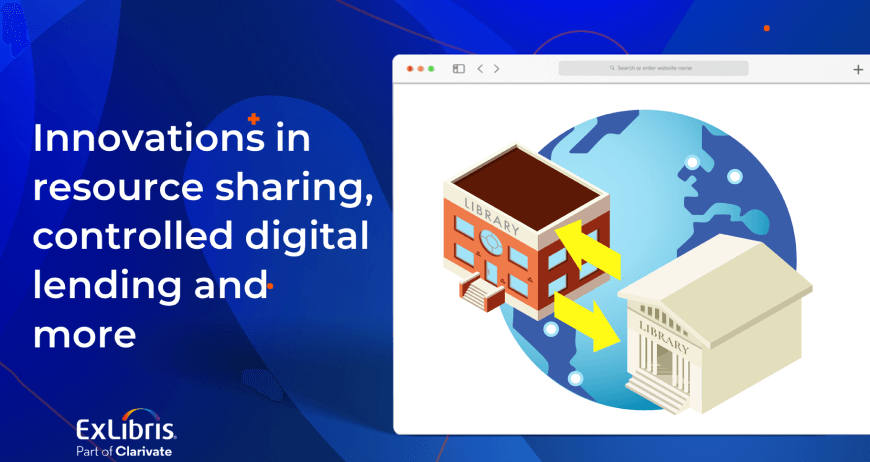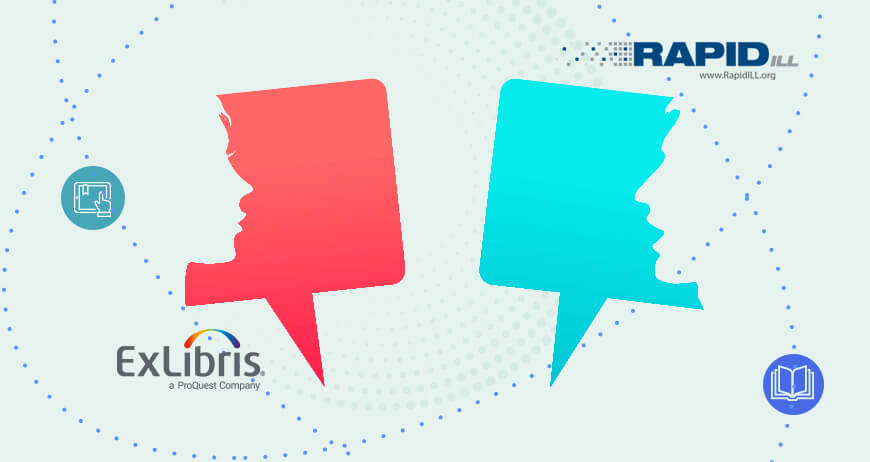
Mike Richins, Director of Product Management at RapidILL and Sharona Sagi, VP Resource Sharing Solutions at Ex Libris
Ex Libris, our integrated library system, is welcoming RapidILL into its family of solutions as a comprehensive library software, adding one of the most practical and innovative resource sharing systems for what is expected to be a revolution in the field. To better understand what this joining of forces will mean for libraries, patrons, and customers, we sat down for a chat with Sharona Sagi, VP of Resource Sharing Solutions at Ex Libris, and Mike Richins, Director of Product Management at Rapid.
Thank you both very much for your time. Sharona, let me start with you. Can you tell us a bit about yourself?
Sharona: Sure. I’ve worked in various product management positions for over 15 years, including Ex Libris. I just returned to Ex Libris to lead the resource sharing solutions unit. We are building an exciting new resource sharing product focused on user experience with the help of dedicated experts.
Mike: I first became enthralled with interlibrary loan as a college student. It seemed like magic, obtaining material from places I couldn’t get to easily, and sometimes from halfway around the world. This led me to work in the Colorado State University Morgan Library as a student employee and, after graduation, to get a position in the ILL department, where I worked alongside many wonderful staff and students. I eventually became the Lending Supervisor and developed custom tools to augment the software we were using to manage ILL requests. During this time, RapidILL, a company dedicated to library resource sharing, was gaining recognition in the academic community. Impressed by their forward-thinking approach and collaborative spirit, I assisted them with projects like their new delivery platform, RapidX. In 2010, my dream came true when they offered me a position on their team, where I started with support and training before becoming the RapidILL team manager in 2016.










